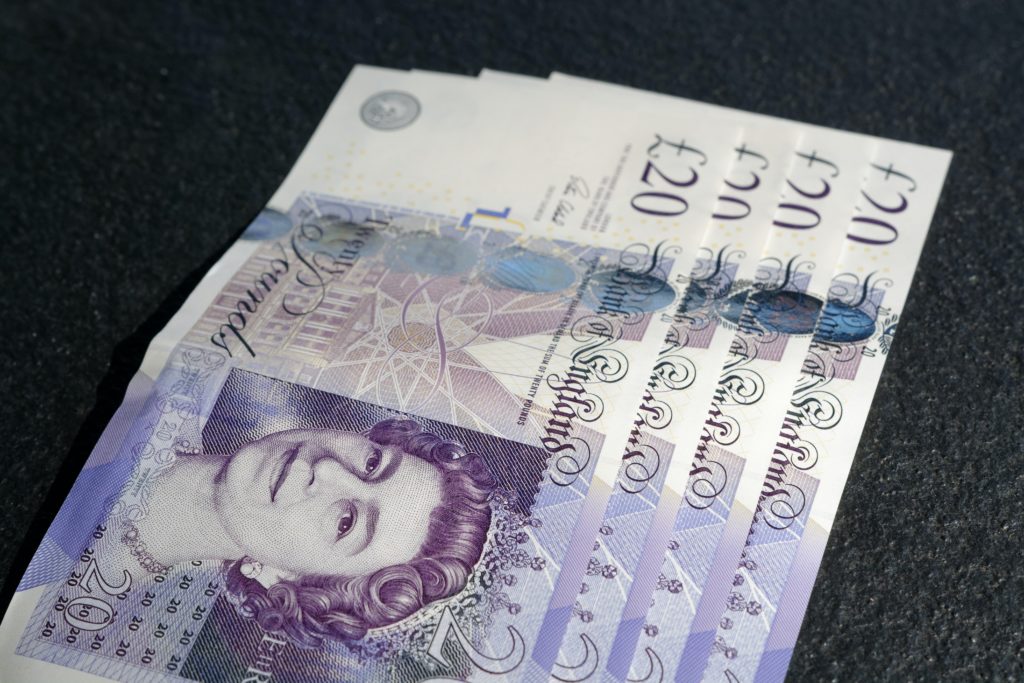Setting up a business is a lot of work! Endless paperwork and everyday, you learn about a new thing to add to your to-do list.
Here’s another one to tag on your checklist: set up a merchant account.
What’s a merchant account? That’s what we are going to answer in this blog post. We’ll discuss what it is, why you need one, how to set one up, and how to choose which provider is best.
What is a merchant account?
A merchant account is a type of bank account for businesses who take electronic payments. It’s not like a regular business bank account because you don’t have direct access to it. It’s like a “holding” account where your money sits before it’s transferred to your main business bank account.
There are many moving parts when taking card payments, so while everything is working in the background, your hard-earned cash needs somewhere safe to live before being transferred to your business account. It sits in the merchant account waiting patiently for a couple of business days!
Is a merchant account the same as a bank account?
No - it is not an account you can access and transfer money in and out of freely. It’s just a temporary place for your funds while the processing goes on behind the scenes.
How do merchant accounts work?
Here’s a rough outline of how merchant accounts work:
Taking the payment
- Customer pays using electronic payment (like credit or debit card).
Processing the payment
- The card terminal sends the customer’s card details to your merchant acquiring bank (who provides the merchant account).
- The acquiring bank contacts the card processor who then contacts the card issuer.
- The card issuer checks the funds available in the customer’s account and performs security checks, then authenticates the transaction.
Receiving the payment
- The customer’s bank will deposit funds in the merchant account. This “settlement period” lasts 24 hours to 7 days before the money is transferred to the business’s bank account.

Are there different types of merchant accounts?
There are a few types of merchant accounts to suit different types of business. The two main ones you should concern yourself with are:
- Mobile merchant accounts.
- Contract merchant account.
With a mobile merchant account, you pay-as-you-go without any contracts. The transaction fees then work out slightly more expensive but at least you have no monthly costs to cover. These types of accounts are best for businesses with lower or infrequent card turnover. Examples of mobile merchant account providers are Zettle and Stripe.
With a contract merchant account you, clue in the name, are tied into a contract. With your monthly fee, you pay lower transaction fees. These types of contracts are best for those with higher card turnover who don’t operate seasonally. Examples of contract merchant account providers are takepayments and WorldPay.
Do I need a merchant account?
If you want to take electronic payments, you’ll need a merchant account. This means all online businesses and in-person businesses who use card machines need one.
That said, you don’t necessarily need a merchant account of your own. If you sell on marketplaces like Etsy, Amazon, and eBay, you may be able to use the merchant account they have built-in to the service. Merchant services providers like Stripe also offer this as part of their service.
If you want to take electronic payments separate from these marketplaces, then you’ll need to get a merchant account of your own.
What fees are involved with a merchant account?
Different merchant account providers charge different fees, so be sure to check the fine print of the one you opt for. Here is an outline of the average fees you can expect:
- Set up fee - a one-time fee for getting you up and running.
- Monthly minimum fee - charged if you don’t process a certain amount of month in a month.
- Annual fee - for use of the service each year.
- Transaction fee - card processing fee to process the payments.
- Card terminal/virtual terminal fee - for use of a physical card reader and/or virtual terminal to take the payments.
- Payment gateway fee - for use of a payment gateway to process payments.
- Batch fee - so that your transactions can be bundled in a batch and sent for payment processing together.
- Chargeback fee - if a customer actions a chargeback, you may pay a fee to process this.
- Refund fee - if a customer requests a refund, you may pay a fee to process this.
- Early termination fee - if you end your contract early, you may pay this.

What do I need to get a merchant account?
To set up a merchant account, you’ll need a variety of documents to prove your identity and provide information about your business. The documents you may need include:
- Business registration documents.
- Proof of identity for the owners/directors.
- Proof of address for owners/directors.
- Financial statements (bank statements, balance sheets, profit and loss statements, etc).
- VAT registration certification (if applicable).
- Business plan.
- Any licences or permits your business requires for your industry.
What are merchant services?
Merchant services are more comprehensive, aimed not just at payment processing but in assisting your broader business overall. You can read in more detail about what merchant services are here.
As well as a merchant account, they can include:
- Payment gateways
- Card readers
- Point-of-sale (POS) systems
- Ecommerce support
- Partner networks (third-party providers who offer additional products to integrate into your set-up).
Not every business will benefit from merchant services. Some businesses are better off picking and choosing which they want from different providers, and some will only need say a card reader and card payment processing capabilities, and nothing more.
How do I choose a merchant account provider?
During your search for the best merchant account provider for your business, take the following into consideration:
- Budget - what can you afford monthly in terms of contract fees and transaction fees? Cheaper providers offer fewer features/support, but can you go without?
- Features - are you a startup that just needs the basics? Or a bigger operation that needs a feature-rich merchant account to keep up with your growing sales volume?
- Contract terms - how long a contract are you tied into? Is there a hefty exit fee? What suits the trajectory of your business?
- Customer support - what are the operating hours of your business and how does this compare to the customer support available? How do you prefer to contact businesses and do their contact methods align with this?
- Customer reviews - how do current and previous customers feel about the provider? Check a few review sites out and see what the general theme of the reviews is.
Conclusion
Hopefully you’re all clued up now on what a merchant account is, and ready to set one up for yourself!
CardSwitcher helps you save money on your card processing costs. Find a cheaper merchant account provider with our help - click the button below to compare quotes.


